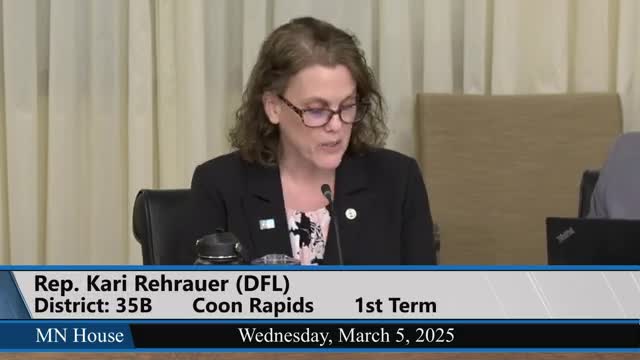Minnesota bill advances funding for Math Corps tutoring program to boost math skills
March 06, 2025 | 2025 Legislature MN, Minnesota
Thanks to Scribe from Workplace AI , all articles about Minnesota are free for you to enjoy throughout 2025!

This article was created by AI using a video recording of the meeting. It summarizes the key points discussed, but for full details and context, please refer to the video of the full meeting. Link to Full Meeting
Math Corps, an AmeriCorps-powered program, offers up to 90 minutes of weekly tutoring in small groups, ensuring that students receive personalized attention. The program has been recognized for its effectiveness, with multiple studies demonstrating its ability to accelerate student learning. According to proponents, Math Corps is one of the most cost-effective tutoring programs available, requiring fewer hours to achieve a month of additional learning compared to other methods.
During the meeting, educators and researchers highlighted the pressing need for improved math instruction, particularly in light of declining scores in state assessments. David Parker, Vice President of Research and Development at SIR Minnesota, emphasized the correlation between math proficiency and economic growth, noting that strong math skills are essential for students' future opportunities in STEM fields and other careers.
Testimonies from educators, including Jody Fant, principal at Barnum High School, illustrated the program's impact on individual students. Fant shared a success story of a student who, with the help of a Math Corps tutor, transformed from struggling in math to excelling in competitions. This anecdote underscored the program's role in building student confidence and engagement.
The committee's discussions also touched on the broader implications of investing in math education, with members acknowledging the importance of equipping students with the skills necessary for their future success. As the bill moves forward, it represents a commitment to addressing educational disparities and enhancing the quality of math instruction across Minnesota schools. The next steps will involve further discussions and potential amendments as the legislative process continues.
Converted from House Education Policy Committee 3/5/25 meeting on March 06, 2025
Link to Full Meeting
Comments
View full meeting
This article is based on a recent meeting—watch the full video and explore the complete transcript for deeper insights into the discussion.
View full meeting
